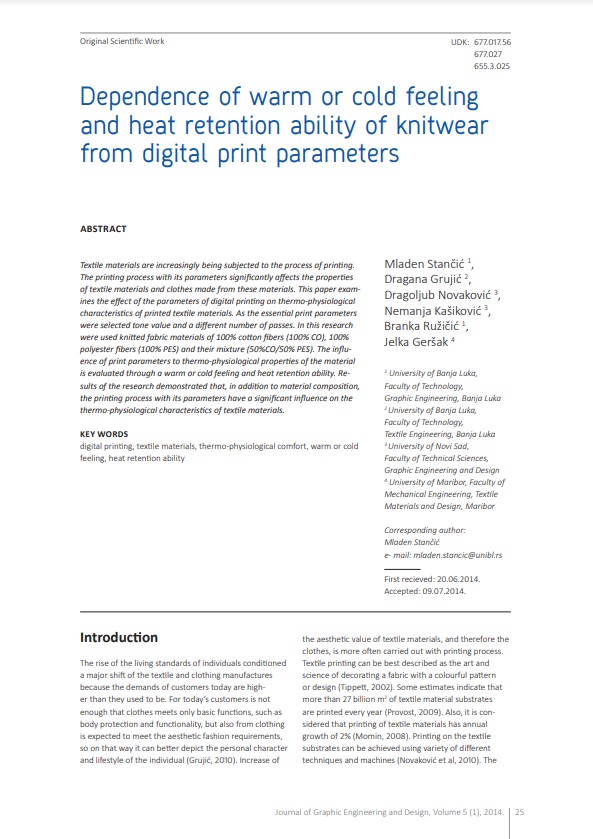Dependence of warm or cold feeling and heat retention ability of knitwear from digital print parameters

Published 2023-09-30
abstract views: 355 // Full text article (PDF): 256
Keywords
- digital printing,
- textile materials,
- thermo-physiological comfort,
- warm or cold feeling,
- heat retention ability
How to Cite
Copyright (c) 2014 © 2014 Authors. Published by the University of Novi Sad, Faculty of Technical Sciences, Department of Graphic Engineering and Design. This article is an open access article distributed under the terms and conditions of the Creative Commons Attribution license 3.0 Serbia.

This work is licensed under a Creative Commons Attribution 3.0 Unported License.
Abstract
-
Textile materials are increasingly being subjected to the process of printing. The printing process with its parameters significantly affects the properties of textile materials and clothes made from these materials. This paper examines the effect of the parameters of digital printing on thermo-physiological characteristics of printed textile materials. As the essential print parameters were selected tone value and a different number of passes. In this research were used knitted fabric materials of 100% cotton fibers (100% CO), 100% polyester fibers (100% PES) and their mixture (50%CO/50% PES). The influence of print parameters to thermo-physiological properties of the material is evaluated through a warm or cold feeling and heat retention ability. Results of the research demonstrated that, in addition to material composition, the printing process with its parameters have a significant influence on the thermo-physiological characteristics of textile materials.

